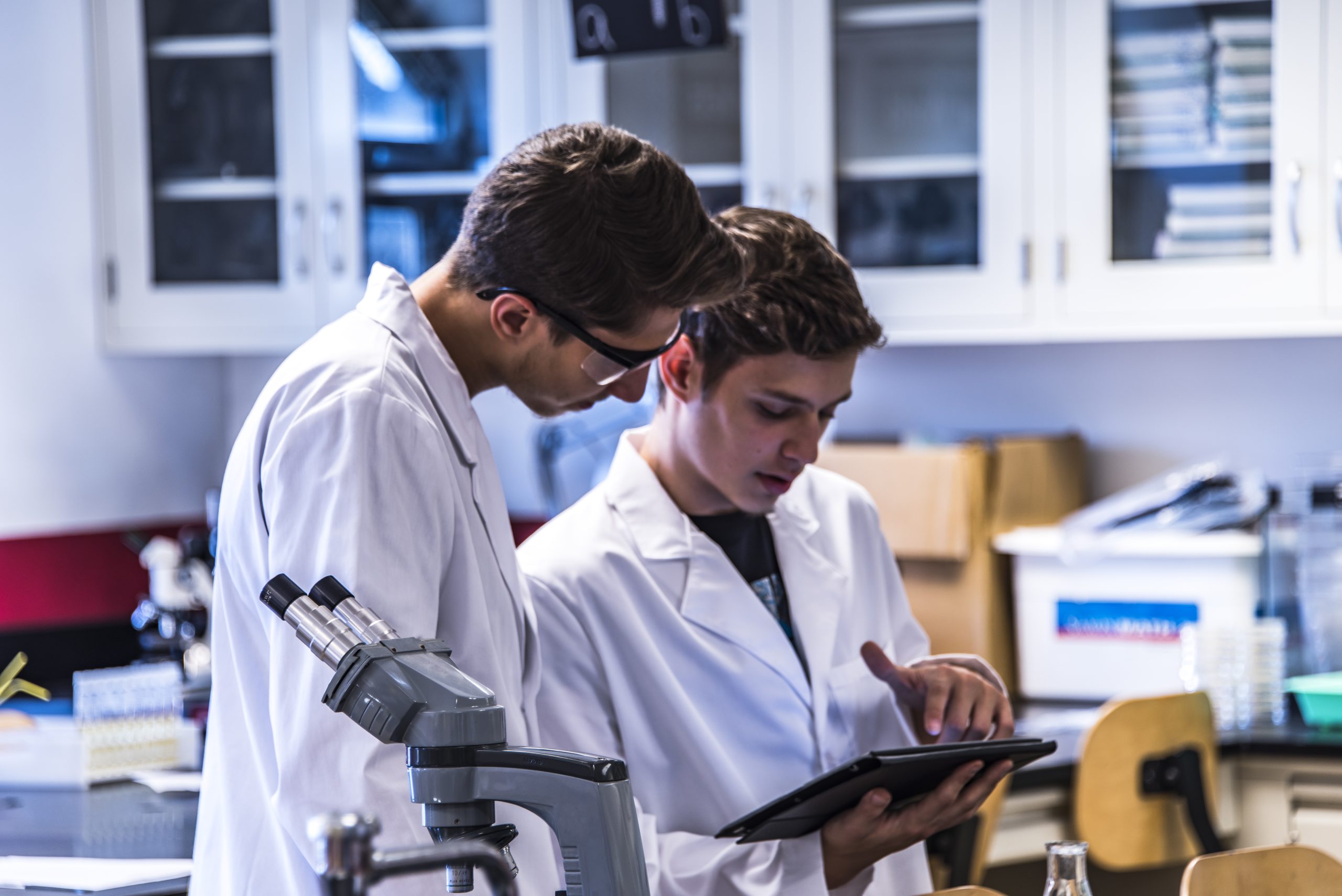Contents
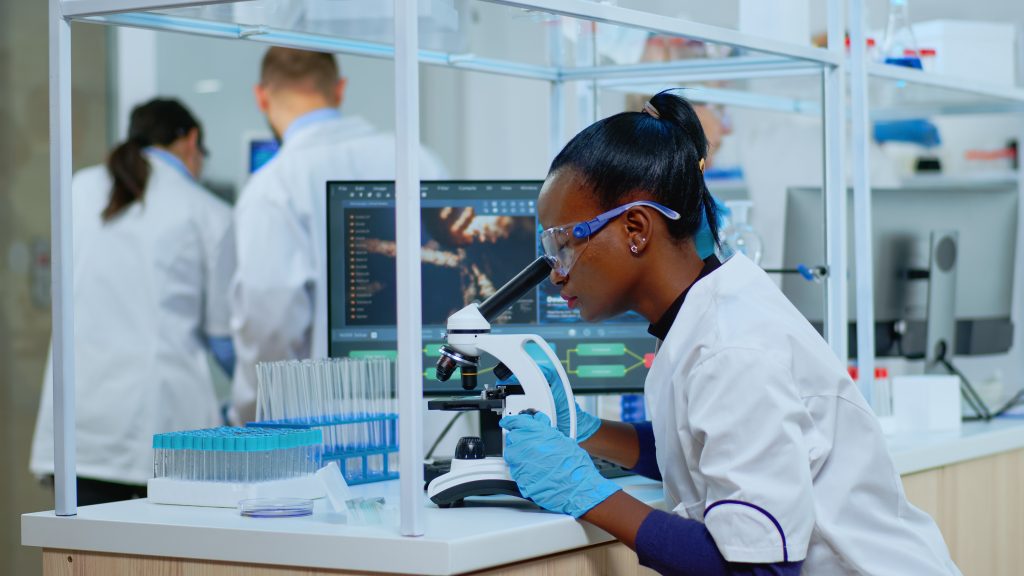 Biochemists work in different areas of research, primarily basic and applied. In basic research, a biochemist’s role is to expand human knowledge. Applied research focuses on solving a particular problem. To become a biochemist, you must fulfill certain biochemistry degree requirements, such as completing the proper coursework and earning a degree in biochemistry or a related discipline. Higher-than-average wages and promising job prospects draw science-bent students to this career. Below, we discuss important details about this unique occupation and the best degree path for becoming a biochemist.
Biochemists work in different areas of research, primarily basic and applied. In basic research, a biochemist’s role is to expand human knowledge. Applied research focuses on solving a particular problem. To become a biochemist, you must fulfill certain biochemistry degree requirements, such as completing the proper coursework and earning a degree in biochemistry or a related discipline. Higher-than-average wages and promising job prospects draw science-bent students to this career. Below, we discuss important details about this unique occupation and the best degree path for becoming a biochemist.
How Do You Become a Biochemist?
- Earn Your Undergraduate Degree
- Complete an Internship
- Enroll in a Doctoral Studies Program
- Conduct Research
- Land a Job
- Succeed in Your Career
- agribusiness firms
- biotechnology companies
- drug companies
- hospital laboratories
- research labs
What Degree Does a Biochemist Need?
Bachelor’s Degree One of the best degrees for biochemists is a bachelor’s in biochemistry. A biochemistry undergraduate degree serves as the foundation for your career in biochemistry. Bachelor’s in biochemistry programs synthesize concepts from biology and chemistry. Courses cover foundational topics, such as:- Calculus
- Cellular biology
- General biology
- Inorganic chemistry
- Microbiology
- Molecular biology
- Organic chemistry
- Physics
- Biochemistry
- Chemical thermodynamics
- Intermediate organic chemistry
- Research planning
- conduct independent research
- secure funding
- hold an administrative position
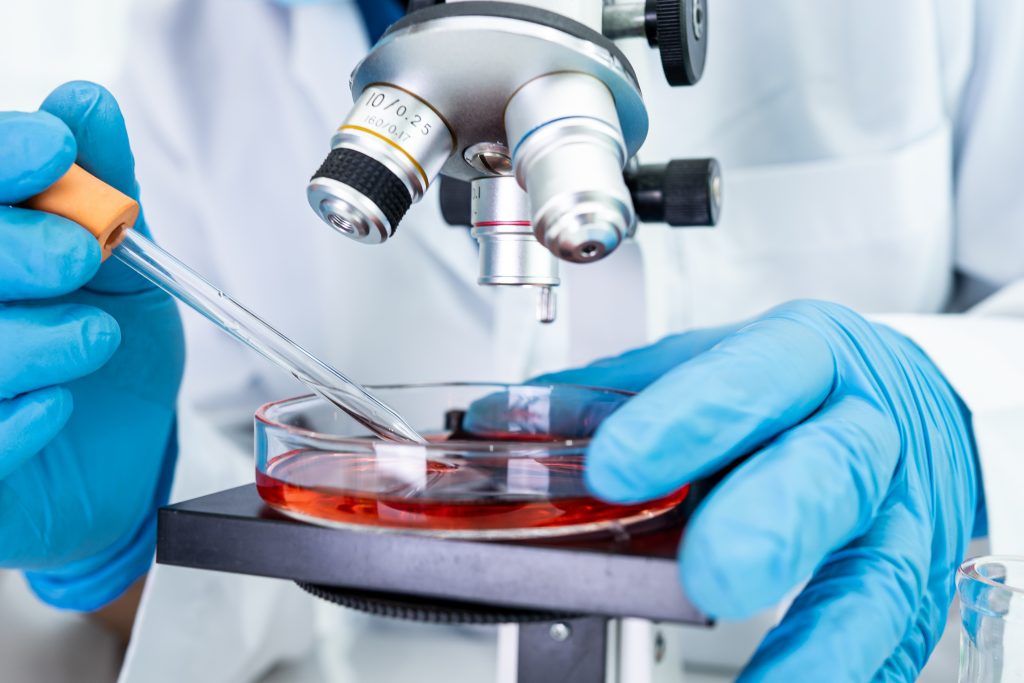
What Does It Take to Be a Biochemist?
Are you suited to work as a biochemist? Scientists have distinct personalities. They tend to be:- introspective
- inquisitive
- intellectual
- Ability to persevere: Since scientific research involves extensive trial and error, biochemists must be able to persevere and not become discouraged. They must be thorough and persistent in their approach to problems.
- Analytical skills: Biochemists must approach research and analysis with a high degree of accuracy and precision. Strong analytical skills are needed when conducting experiments.
- Critical-thinking skills: The abilities to think critically and make sound judgments are needed in science. As a biochemist, you must draw scientifically based conclusions from experimental results. To do this, a biochemist should have strong critical-thinking skills.
- Effective communication skills: Being a good communicator is essential in any role, but as a biochemist, communication skills are critical. All forms of communication are used in the role of a biochemist. Biochemists:
- publish research papers and findings
- give presentations to wide audiences
- communicate with fellow colleagues and team members
- Interpersonal skills: The work of a biochemist is interdisciplinary in nature. Research teams are made up of experts in a range of disciplines. Biochemists must have strong interpersonal skills. Biochemists and their team members work toward a common goal. However, they may disagree on results or findings. Having strong interpersonal skills allows them to continue their work as a cohesive team.
- Mathematical acumen: Biochemists work with complex mathematical equations and formulas. They must have strong math skills and a clear grasp on calculus and statistics. It’s important to try to develop your math skills as early on as possible by taking foundational math courses in high school and college. Algebra, calculus, and statistics are all important courses to take for a career in biochemistry.
- Time-management skills: Much of the work a biochemist does is time sensitive. Lab experiments and data collection involve tight deadlines that, if missed, cause poor outcomes. Biochemists must be able to manage their time efficiently while maintaining high-quality work.
How Long Does It Take to Become a Biochemist?
Becoming a biochemist is no short journey. The first step in becoming a biochemist is to earn a bachelor’s degree. The bachelor’s in biochemistry typically takes four years to complete. Once you’ve earned a bachelor’s degree, you’ll enroll in a PhD program. Typical PhD in biochemistry programs take, on average, five years to complete. So, to qualify for most biochemist jobs, you’ll need to spend nine years in college. However, accelerated programs take less time. For example, students may sometimes be able to earn a bachelor’s in biochemistry in three years.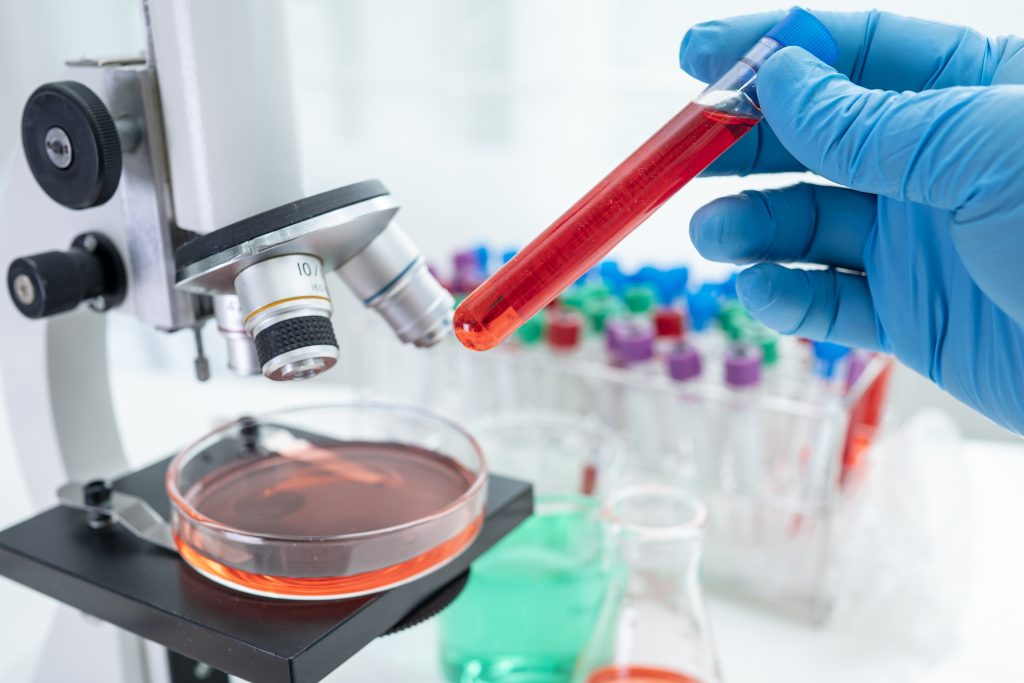
How to Become a Biochemist Without a Degree
Without a degree, you won’t go far as a biochemist. In fact, most biochemist jobs require a doctorate degree. If you plan to work in research and development, you’ll most likely need a PhD in biochemistry, even for entry-level positions. There’s no way around it. If you don’t have a degree in biochemistry, you won’t be able to work as a biochemist.How Much Money Does a Biochemist Make?
According to the Bureau of Labor Statistics (BLS), the median annual wage for biochemists is $94,270. The lowest 10% of earners in this occupation make less than $53,000, while the highest 10% of earners make over $169,800. Biochemists earn nearly twice the national average for all occupations ($41,950). But to earn high wages, you must land a job in a high-paying industry. BLS reports four top-paying industries for biochemists that offer favorable earnings. Two of the top four industries pay equal to or above the average earnings for this occupation. The highest-paying industries for biochemists are listed below: Wholesale trade: $115,260 Management, scientific, and technical consulting services: $94,100 Pharmaceutical and medicine manufacturing: $89,230 Colleges, professional schools, and universities: $59,190 While industry type impacts the earnings you make as a biochemist, so does geographic location. According to the BLS, there are five top-paying states for biochemists. In these states, biochemists see higher earnings than the national average of $94,270. High-paying states include:- Montana: $165,300 (annual mean wage)
- New Jersey: $115,670
- California: $115,110
- Massachusetts: $110,750
- Pennsylvania: $107,480
- San Jose, Sunnyvale, Santa Clara (California): $145,020
- Cincinnati metro area: $132,280
- Minneapolis, St. Paul, Bloomington: $131,720
- San Francisco, Oakland, Hayward (California): $128,750
- New York, Newark, Jersey City: $112,040
- Boston, Cambridge, Nashua: $110,220
- Baltimore, Columbia, Towson (Maryland): $107,090
- Philadelphia, Camden, Wilmington: $106,820
- Phoenix, Mesa, Scottsdale (Arizona): $106,080
- Bridgeport, Stamford, Norwalk (Connecticut): $106,060
What Is the Job Outlook for Biochemists?
Once your biochemistry schooling is complete, you’ll embark on your career. It’s important to know what the projected job outlook is for biochemists, so that you know what your job prospects will be after you graduate. According to the Bureau of Labor Statistics (BLS), employment for biochemists is expected to grow five percent through 2030. Growth is slower than the average for all occupations (eight percent) and significantly slower than the average for all life scientists (11 percent). However, despite the limited employment growth, there should be about 3,200 job openings for biochemists and biophysicists each year, on average, over the next 10 years. Most of these openings will result from the need to fill positions left vacant when people retire or exit the labor force. However, openings will also result from the continued need to conduct basic research that increases scientific knowledge and the development of products that improve people’s lives. As the population ages, we will see a demand for the creation of new drugs, procedures, and processes to prevent and cure disease. The increased demand will drive the need for biochemists who are involved in certain areas of biochemistry, such as biomedical research. Further demand for biochemists will result in areas of research and development in biotechnology outside health topics. Biochemist researchers will be needed to work on projects that advance capabilities related to:- more efficient food production
- clean energy
- protection of the environment
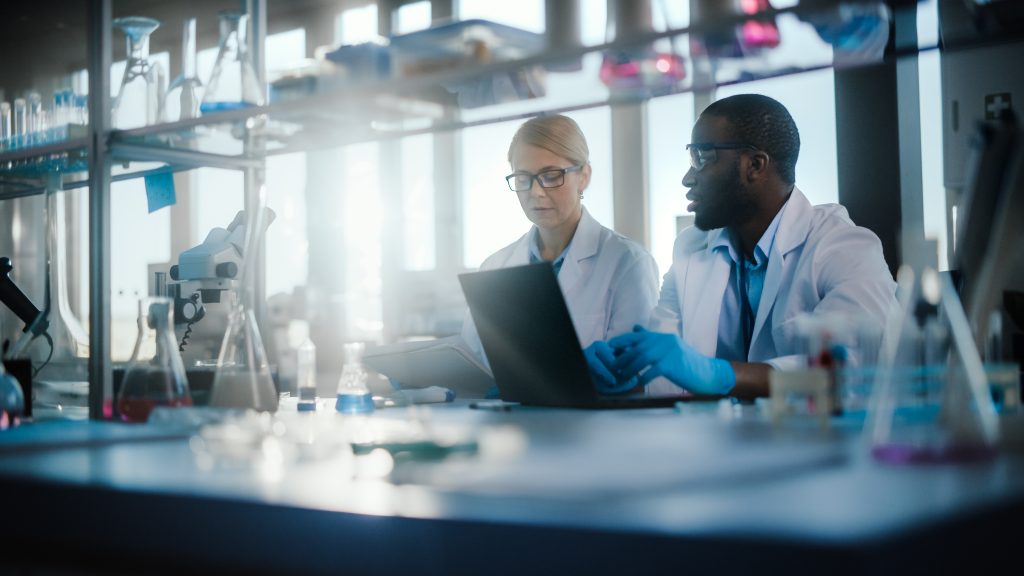
What Is the Work Environment Like for Biochemists?
Biochemists typically work in laboratories, where they:- conduct experiments
- analyze data
- determine outcomes and results
- chemists
- computer scientists
- engineers
- physicists
- Pharmaceutical and medicine manufacturing: 11 percent
- Colleges, professional schools, and universities: seven percent
- Management, scientific, and technical consulting services: two percent
- Wholesale trade: two percent
Related Resources:
- 30 Great Small Colleges for STEM Degrees 2022
- Online Bachelor’s Degree in Health Science: 30 Best
- Top 30 Affordable Online Bachelor’s in Psychology
- Top 20 Degrees for Intellectuals
- Top 20 Degrees for the Future
- Ultimate Guide to Science and Engineering Degrees and Careers
